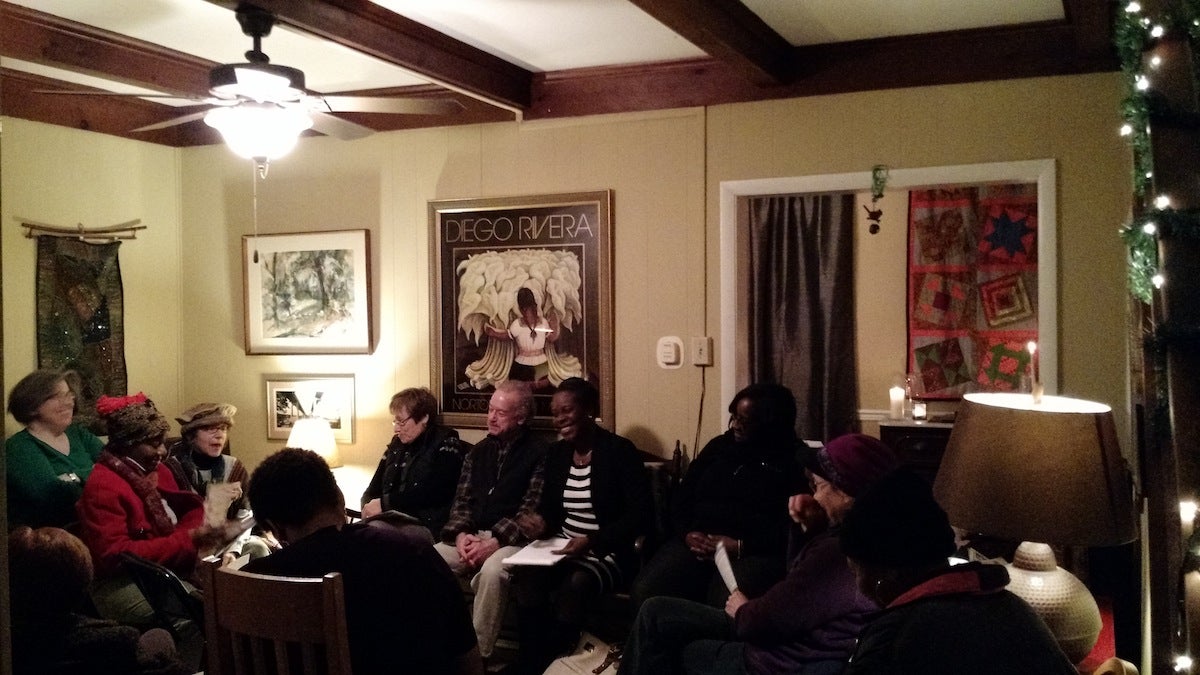State Rep. Cherelle Parker talks community concerns with Mt. Airy town watch group

State Rep. Cherelle Parker met with the Mt. Airy-Nippon-Bryan-Creishem Town Watch last week. (Daniel Pasquarello/for NewsWorks)
On Tuesday evening state Rep. Cherelle Parker of the 200th District spoke at the monthly meeting of the Mt. Airy-Nippon-Bryan-Creishem Town Watch.
Throughout her remarks Parker stressed that constituent services and bipartisan collaboration are the means by which she can best support the residents of her legislative district.
“You measure the effectiveness of a politician’s work by how much that person brings back to their constituents,” said Parker. “I’m willing to work with anyone I have to in order to accomplish the things I need to for the people I serve. You are my constituents — but you are also my customers.”
Origins
Parker credits witnessing the first-hand work Dwight Evans was doing as the state Rep. for West Oak Lane with helping her to realize the crucial role that commercial corridor enhancement projects play in promoting the health and vitality of a neighborhood.
On Tuesday she acknowledged the work of her predecessors David P. Richardson and Allyson Schwartz, citing their tireless advocacy for Germantown.
“Germantown Avenue is a whole lot better today as a result of their work and improvements,” she said.
Issues
Before opening the floor to questions Parker ran down a list of some of the legislative issues she considers to be important, citing in particular her support for increased funding of public education, controlling the flow of illegal handguns, tax reform and empowering the City of Philadelphia to collect payment on delinquent property taxes.
She discussed the Long Time Owner Occupancy Program (LOOP) passed by City Council last year that will cap the property tax owed by certain longtime residents for 10 years.
Parker further noted that a significant amount of the property tax owed to the city is attributable to absentee owners whose primary residence is located within the five county region.
“If the city had the power to put a lien on those suburban properties, then that would be a game-changer,” she said.
Education
Parker reported to the Town Watch group that Pennsylvania is one of only three states that, at this time, do not use a funding formula to budget for education spending. The state’s last funding formula was eliminated in 2011. The charter school reimbursement line item in the state budget was eliminated at the same time.
Parker stressed during the question and answer portion of the meeting that it is a major legislative goal of hers to see these items once again part of the state budgetary process.
“What we have to constantly remind people of when we hear politicians talk about budgets is that these are living breathing documents that represent our priorities. What are we saying we value when we choose not to fund public education?”
WHYY is your source for fact-based, in-depth journalism and information. As a nonprofit organization, we rely on financial support from readers like you. Please give today.




